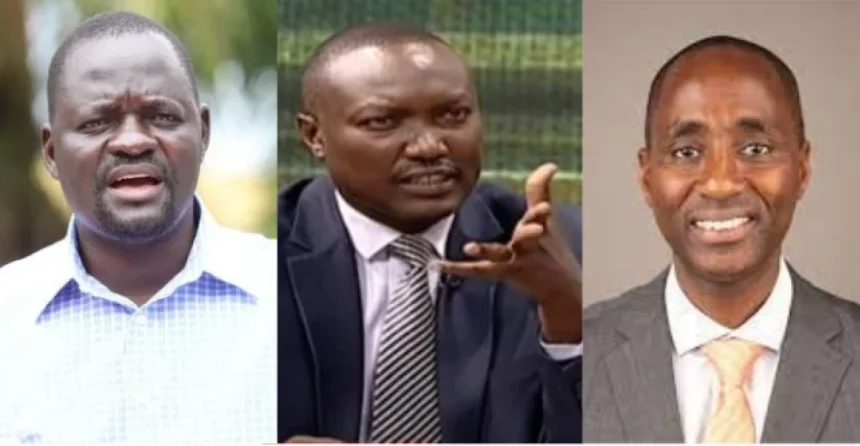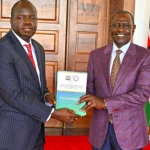A section of leaders has waded into the debate around the burden of President William Ruto’s advisers.
This comes amid reports that the president’s growing list of 20 advisors gobbles over Ksh.1 billion every year in salaries and running costs of their offices in salaries, allowances, motorcades, and running costs.
At a time when the country is grappling with economic strain, youth unemployment, and the aftermath of deadly anti-tax protests, the optics of State House appointments are drawing fire from both sides of the aisle.
Some defend the need for advisers in high office. MP Jared Okello argues that no leader, regardless of their brilliance, can govern effectively alone.
“The president, as brilliant as he is, he has a doctorate and cannot know everything,” said Okello. “We cannot fault him for having advisers to steer the ship with him.”
Indeed, advisers are not new to State House. Every administration has relied on key confidants to shape policy and political strategy. B
But critics say the sheer scale and nature of these appointments many of them former politicians or loyalists, point to a bloated executive that is more about political reward than public service.
MP Robert Mbui, in a scathing address to Parliament, challenged the justification for the ever-expanding list of presidential advisers.
“We’re dancing on the graves of our Gen Z,” Mbui said, referencing the young lives lost during recent protests. “They were demanding an end to wasteful spending, to this idea that you can have advisers for everything.”
Mbui didn’t stop there. He accused State House of bypassing Cabinet processes and undermining constitutional governance.
“When former Treasury CS Ukur Yatani left, he admitted there was interference from State House advisers. Policy wasn’t coming from Cabinet, it was coming from informal networks around the president,” Mbui noted. “That’s why even Treasury officials couldn’t explain parts of the Finance Bill.”
His concern is echoed across party lines: that a parallel power structure is emerging within the presidency, one that sows confusion rather than coherence.
One appointment in particular has sparked public uproar: former Trade Cabinet Secretary Moses Kuria, who was removed from Cabinet only to resurface as a presidential adviser. To critics, it is a contradiction that speaks volumes.
“How do you take someone who was a CS, dismiss them, and then bring them back to advise you on the very things they were supposed to execute?” asked Mbui. “This is a tragedy.”
MP Wandeto painted an even bleaker picture of what he calls “an insatiable appetite” to expand government; not for service delivery, but for political patronage.
“This is not a broad-based government. It’s a bread-based government,” Wandeto quipped. “Everyone must partake of the goodies.”
Wandeto estimates that maintaining just one principal secretary, including their advisers, security detail, office staff, and transport, could cost the state between Ksh.100–200 million annually. And with each appointment comes a ripple effect of additional expenditure, often
All this comes against a backdrop of growing public resentment.
The average Kenyan is contending with high taxes, shrinking incomes, and escalating food and fuel costs. Small businesses are struggling. University graduates are idle. And a generation of young people; bold, educated, and angry has taken to the streets demanding transparency and reform.
For many, the question is no longer whether advisers are necessary. It’s whether they are affordable, accountable, and adding any real value.
As political pressure mounts, the burden of decision lies with President Ruto. Will he listen to the growing calls for austerity and restructure his inner circle or continue to defend what critics are calling an “executive echo chamber”?
For now, the presidential advisory docket remains both a symbol of power and a source of national frustration. In the court of public opinion, the verdict is still out, but the cost is being paid in full.



